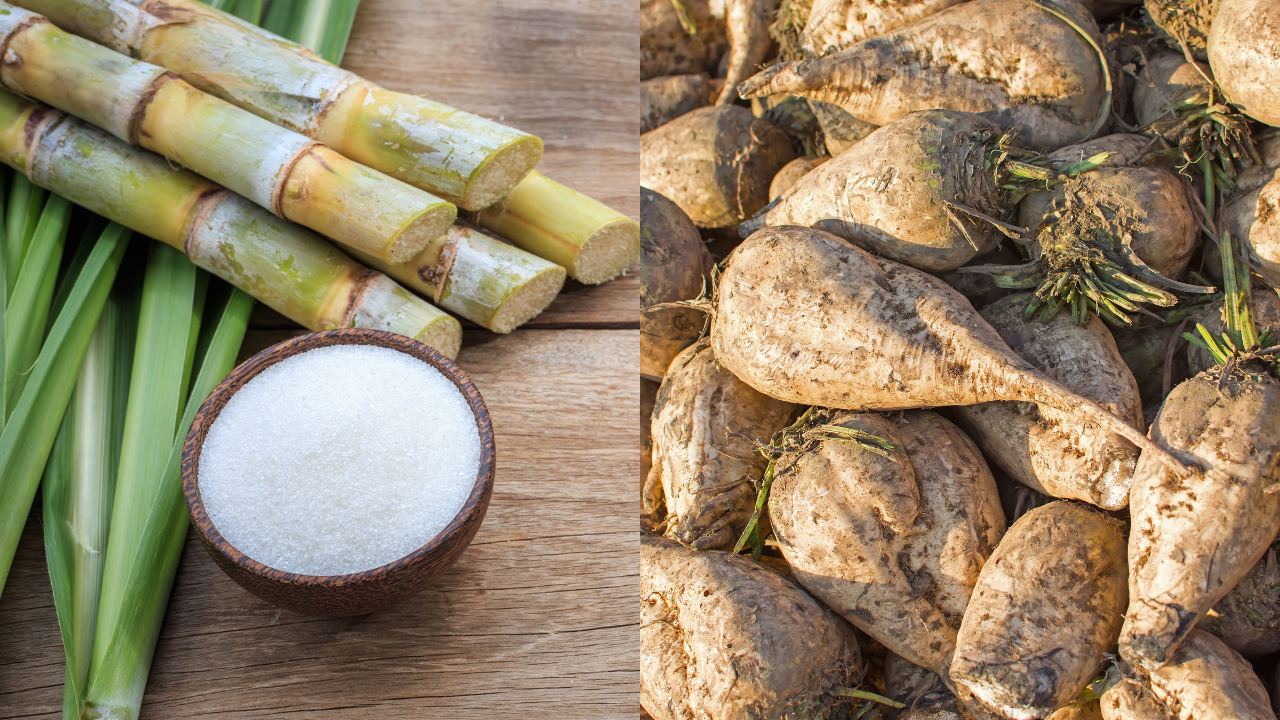People researching beet sugar vs cane sugar often want to know which dissolves better in hot drinks.
People researching beet sugar vs cane sugar often want to know which dissolves better in hot drinks.
Blog Article
Discover the Uses and Benefits of Beet Sugar Vs Cane Sugar in Your Daily Diet
Checking out the distinct top qualities of beet and cane sugar discloses more than just their sweetening capacities; it highlights their special effects on health and wellness and cookeries. Beet sugar, known for its refined taste, is commonly preferred in fragile desserts, whereas cane sugar, with its hint of molasses, adds splendor to robust recipes. Each kind holds its own dietary profile and glycemic effects, inviting a much deeper understanding of their duties in a balanced diet and lasting usage practices.
Origin and Manufacturing Processes of Beet and Cane Sugar

The distinctive environments and dirt kinds needed for expanding sugar beetroots and sugarcane contribute to differences in their growing methods and geographic distribution, affecting the business economics and sustainability of their production. beet sugar vs cane sugar.
Nutritional Contrast In Between Beet Sugar and Cane Sugar
Regardless of originating from various plants, beet sugar and cane sugar are nutritionally really comparable, both largely including sucrose. Each provides regarding 4 calories per gram, converting to approximately 16 calories per teaspoon. Structurally, both sugars are made up of roughly 99.95% sucrose, with very little amounts of various other materials like wetness and trace element, which do not dramatically change their nutritional accounts.

Eventually, when selecting in between beet sugar and cane sugar based upon dietary web content alone, both offer identical benefits and drawbacks as they are essentially forms of the exact same molecule-- sucrose, offering quick power without various other nutrients.
Effect On Wellness: Glycemic Index and Caloric Content
Discovering additionally into the effects of beet sugar and cane sugar on wellness, it is essential to consider their glycemic index and calorie material. Both sugars are identified as sucrose, which consists of glucose and fructose. This structure leads them to have a comparable influence on blood sugar degrees. The glycemic index (GI) of both beet and cane sugar is around 65, categorizing them as high-GI foods, which can create quick spikes in blood glucose degrees. This is an essential aspect for people taking care of diabetic issues or those attempting to maintain their energy degrees throughout the day.
Each kind of sugar contains around 4 calories per gram, making their calorie content equivalent. For those keeping more info here track of caloric intake, especially when managing weight or metabolic health problems, comprehending this equivalence is important (beet sugar vs cane sugar). However, extreme intake of any kind of high-calorie, high-GI food can add to wellness issues such as excessive weight, heart problem, and insulin resistance.
Environmental and Economic Factors To Consider of Sugar Manufacturing
Beyond wellness influences, the manufacturing of beet and cane sugar likewise raises substantial environmental and economic worries. Sugar beet growing has a tendency to call for cooler climates and has a reduced geographical impact contrasted to sugar cane, which prospers in tropical regions. Both crops are extensive in terms of water use and land occupation, potentially leading to deforestation and water shortage. Economically, the international sugar market is highly volatile, affected by modifications in global trade plans and subsidies. Numerous countries incentivize sugar production through financial backing, his explanation skewing market value and affecting small-scale farmers negatively.
Furthermore, the use of pesticides and plant foods in both beet and cane sugar farming can result in soil degradation and contamination, further affecting biodiversity and neighborhood water bodies (beet sugar vs cane sugar). The option between growing sugar beet or cane typically depends upon regional ecological conditions and economic aspects, making the sustainability of sugar production a complex problem
Culinary Applications and Flavor Differences
While the environmental and economic elements of sugar manufacturing are indeed substantial, the option between beet and cane sugar likewise affects cooking applications and flavor accounts. Beet sugar, originated from the sugar beet plant, is known for its extremely neutral preference. This makes it a functional ingredient in baking, where it does not change the taste of various other elements. It liquifies quickly and is optimal for use in cakes, cookies, and pastries.
Cane sugar, drawn out from sugarcane, commonly maintains molasses traces, which give a distinct richness and depth. The minor variant in moisture material between beet and cane sugar can affect the appearance and uniformity of meals, making cane sugar a favored option for certain dishes that benefit from its special homes.

Conclusion
In final click here for info thought, both beet and cane sugar have distinct origins and production procedures, supplying comparable nutritional accounts with small differences in salt material and taste. While their influence on health, particularly regarding glycemic index and calories, is comparable, the selection between them typically boils down to ecological, economic aspects, and specific culinary requirements. Comprehending these facets can lead customers in making informed choices that straighten with their health objectives and flavor preferences.
Report this page